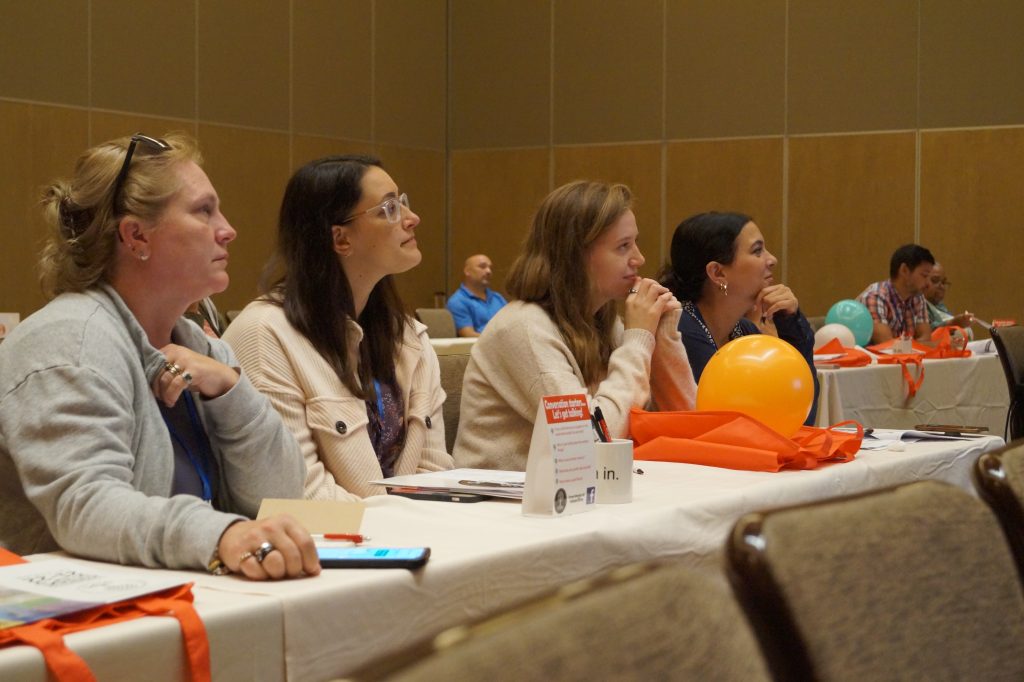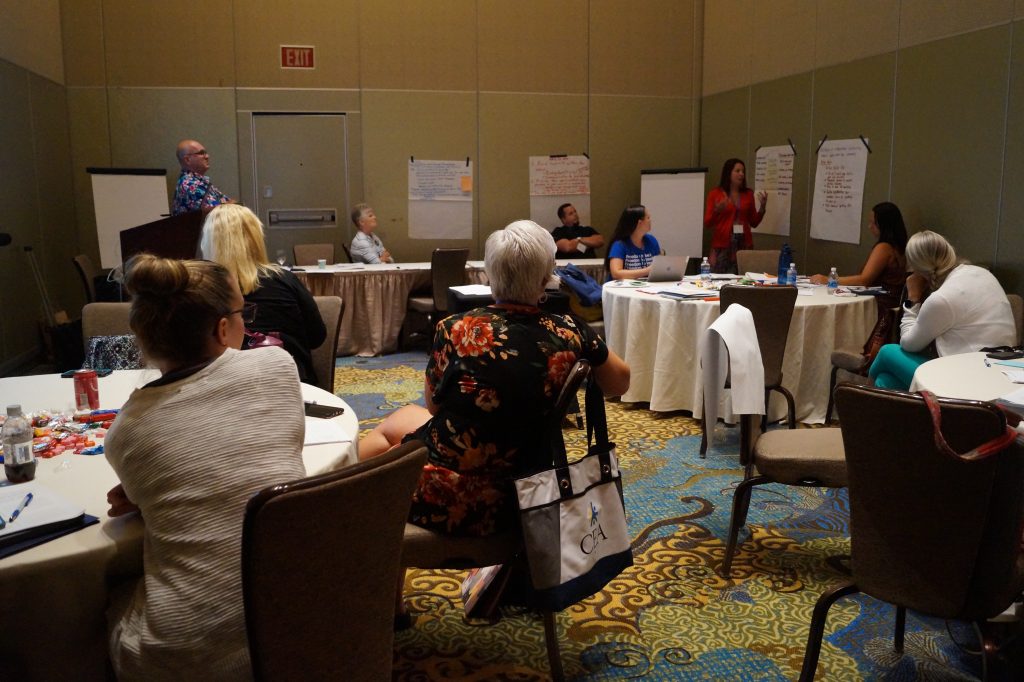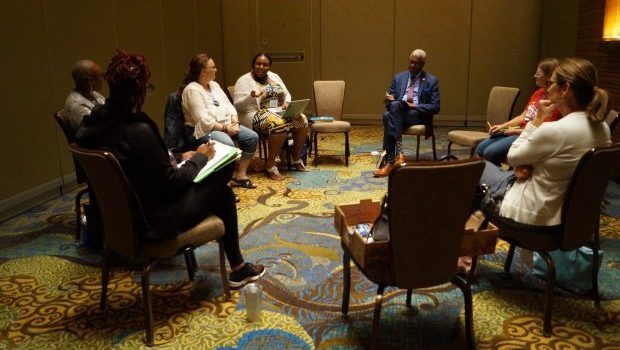At this year’s CEA Summer Conference teachers are gaining knowledge about their union to develop their voices as advocates for their profession while networking with colleagues, whether they are first-time attendees or have been coming for many years. Teachers say the opportunity to connect with colleagues reinforces their commitment to standing united together.
“The first time I came to summer conference was back, I think in 1987. I would have been going into my second year of teaching,” says Bloomfield teacher Mary Kay Rendock. She remembers attending when the conference was held at Trinity College in Hartford and then moved to Sturbridge, Massachusetts.
“I look at the new teachers and I think back to when I first started teaching and the wealth of it, the wealth of knowledge that would come from conferences like this,” she says. “I always left with lots of information, and I always left with a toolbox of things to do, and I felt empowered when I would leave—and that’s the same this year.”
Rendock hadn’t attended Summer Conference in recent years but says she felt that this year was a good time to come back. “I have been named the new treasurer in our local association because we didn’t have one. I decided I better come and figure out what to do.”
One of Rendock’s sessions was for local association treasurers and membership chairs, and she says the session was a great opportunity to learn about her new role while meeting other new treasures from around the state. “So, I did some networking, and it’s just exciting to see the same people that I’ve known for many years, and there’s a lot of friendly new faces as well.”

Canton teacher Colleen Barnhart, at right, attended Summer Conference for the first time this year.
“It’s been really fun,” says Colleen Barnhart, a seventh-year teacher in Canton and first time Summer Conference attendee. “Canton has 17 educators here—we have a huge group from a super small district. Our union president, she really wanted younger teachers to come, and it’s been really fun because I’ve gotten to interact with other people in my district, from different schools, including elementary teachers—and I teach secondary social studies.”
She continues, “That’s been really nice, and it’s been cool to be in sessions with people from other districts and get that feeling that we’re all in this together. Even though district sizes vary, or DRGs, we’re not so very different. We’re all going through the same issues and challenges.”
Waterbury teacher Maria Alicia Azar says she feels Summer Conference helps teachers be grounded. “It helps us learn about the different topics that we choose, and it is good for uniting us.”
She continues, “I have met a lot of nice professionals, like me, and we are all here because we have a passion to be better with the students in the classroom and with the parents. That’s why I am a teacher.”
In addition to the session for treasurers and membership chairs, Rendock is also taking sessions on stress relief, Google Drive, bargaining insurance, and implicit bias.
“I sprinkled in things for me as well as things for my local,” Rendock says.
 “I did the bargaining insurance session, which was very interesting,” says Azar. “I learned a lot, especially how to shop around when it comes to insurance and pharmacies. Then I did the Let Go of Your Stress Class. I love that class. It helped me learn to let stress go in the classroom and in my own life.”
“I did the bargaining insurance session, which was very interesting,” says Azar. “I learned a lot, especially how to shop around when it comes to insurance and pharmacies. Then I did the Let Go of Your Stress Class. I love that class. It helped me learn to let stress go in the classroom and in my own life.”
She also took sessions on communicating with members, Google Drive, and the unusual scenarios local leaders can sometimes be faced with.
The session on letting go of stress has been popular with educators since the first time it was offered at Summer Conference. Barnhart also took and enjoyed the workshop. “It focused on mindfulness and stress relief and emotional well-being—and how to use those tools in terms of both your students and yourself.”
Barnhart encourages other early career educators to attend Summer Conference next year.
“There’s so many tools and resources that teachers don’t really think about until they’re veteran teachers,” she says. The tools Barnhart is learning about at Summer Conference can help prevent burnout, she says, which can force young educators out of the profession.
She adds, “A lot of what I’ve been learning about in the conference is that getting involved with the union as a younger educator is really great because it’s leadership, it’s getting involved in the community. Everyone always says that young teachers have the energy to make change, and I think the union is an avenue to actually do something with that energy.”







